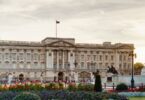Great Depression Multiple Choice Questions:
What event is often considered the trigger of the Great Depression?
(a) Stock market crash of 1929
(b) World War I
(c) Oil crisis
(d) Cold War tensions
Which of the following was a global effect of the Great crash on international trade?
(a) Increased trade barriers and tariffs
(b) Expansion of free trade agreements
When did the Great Depression officially end in the United States?
(a) 1929
(b) 1933
(c) 1939
(d) 1945
What event is considered the starting point of the Great Depression?
(a) The Wall Street Crash of 1929
(b) The signing of the Treaty of Versailles
How did it impact the German economy?
(a) Germany experienced rapid economic growth and prosperity.
(b) Unemployment rates remained stable throughout the Depression.
(c) Germany faced severe economic hardships and high unemployment.
(d) The German economy was largely unaffected by the global crisis.
What event in Germany marked the collapse of the Weimar Republic during the Great Depression?
(a) The Beer Hall Putsch
(b) The Enabling Act
(c) The Reichstag Fire
(d) The Hindenburg Disaster
What were some of the immediate effects of the 1929 stock market crash on the US economy?
(a) Rapid recovery and economic expansion.
(b) A surge in consumer spending and investment.
(c) Bank failures and widespread unemployment.
How did the British government respond to the economic challenges of the Great Depression?
(a) By implementing austerity measures and reducing government spending
(b) By adopting protectionist trade policies to safeguard domestic industries
(c) By implementing Keynesian economic policies to stimulate demand and spending
(d) By maintaining a laissez-faire approach and allowing the market to self-correct
How did the Great Crash of 1929 impact the unemployment rate in the United States?
(a) Unemployment decreased due to government intervention and job creation programs.
(b) Unemployment increased significantly, reaching over 25% at its peak.
What was a significant social consequence of the 1929 stock market crash?
(a) Expansion of social welfare programs
(b) Increase in poverty, unemployment, and homelessness
What were some long-term consequences of the 1929 stock market crash?
(a) Increased government intervention in the economy and financial markets.
(b) Economic reforms that promoted free-market capitalism.
Which country was relatively less affected by the Great crash of 1929 due to its policy of self-sufficiency?
(a) United States
(b) Germany
(c) Soviet Union
(d) Japan
Which program implemented by the U.S. government aimed to stimulate the economy and provide relief to the American people?
(a) The Works Progress Administration
(b) The Social Security Act
(c) The Tennessee Valley Authority
How did the Great Depression impact the political landscape of Europe?
(a) It led to the rise of democratic governments across the continent.
(b) It resulted in increased political stability and cooperation among European nations.
(c) It provided fertile ground for the emergence of extremist ideologies and authoritarian regimes.
Which country was most severely affected by the stock market crash of 1929?
(a) United States
(b) United Kingdom
(c) Germany
(d) France
Which U.S. president implemented the New Deal programs in response to the Great crash?
(a) Franklin D. Roosevelt
(b) Herbert Hoover
(c) Woodrow Wilson
(d) Harry S. Truman
Which factor contributed to the causes of the stock market crash of 1929?
(a) Excessive government regulation and intervention.
(b) Stable and sustainable economic growth.
(c) Speculative buying and overextension of credit.
(d) High levels of corporate transparency and accountability.
Which political party gained significant support in Germany during the Great crash?
(a) Social Democratic Party (SPD)
(b) Communist Party (KPD)
(c) National Socialist German Workers’ Party (NSDAP)
(d) Christian Democratic Union (CDU)
Which European country experienced hyperinflation and economic collapse during this period?
(a) France
(b) Italy
(c) Austria
(d) Spain
Which factor contributed to the rise of Adolf Hitler and the Nazi Party in Germany during the Great Depression?
(a) A strong democratic government
(b) Successful economic policies
(c) Discontent and frustration over economic conditions
Which European country experienced a severe economic downturn and high unemployment rates during the Great Depression but managed to recover relatively quickly?
(a) Germany
(b) United Kingdom
(c) Sweden
(d) Belgium
Which country was hit hardest by the Great Depression?
(a) United States
(b) Netherlands
(c) United Kingdom
(d) Japan
Which political party came to power in England during the Great crash?
(a) Conservative Party
(b) Labour Party
(c) Liberal Party
(d) Scottish National Party
Which stock exchange experienced the largest drop in stock prices during the 1929 crash?
(a) New York Stock Exchange
(b) London Stock Exchange
(c) Tokyo Stock Exchange
(d) Shanghai Stock Exchange
How did the Great Depression impact the global political landscape?
(a) Strengthened international alliances and cooperation
(b) Led to the rise of authoritarian regimes
(c) Resulted in the dissolution of colonial empires
Which major event occurred towards the end of the Great Depression?
(a) Stock market crash of 1929
(b) New Deal policies implemented
(c) World War I
(d) Dust Bowl
What major economic event occurred during the Great Depression, leading to a significant decline in global trade?
(a) The Smoot-Hawley Tariff Act
(b) The establishment of the Federal Reserve
(c) The adoption of the gold standard






